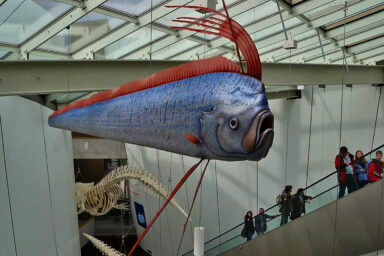Americans Lost $5.6B to Cryptocurrency Fraud Last Year: FBI
PICKS are stories from many sources, selected by our editors or recommended by our readers because they are important, surprising, troubling, enlightening, inspiring, or amusing. They appear on our site and in our daily newsletter. Please send suggested articles, videos, podcasts, etc. to picks@whowhatwhy.org.
|
Listen To This Story
|
Americans Lost $5.6B to Cryptocurrency Fraud Last Year: FBI (Maria)
The author writes, “Americans were duped out of more than $5.6 billion last year through fraud schemes involving cryptocurrency, the FBI said in a report released Monday that shows a 45% jump in losses from 2022. The FBI received nearly 70,000 complaints in 2023 by victims of financial fraud involving bitcoin, ether and other cryptocurrencies, according to the FBI. The most rampant scheme was investment fraud, which accounted for $3.96 billion of the losses.”
Georgia Officials Brace for Threats Ahead of Presidential Election (Reader Steve)
The author writes, “Election officials in Georgia and across the country are bracing for threats and harassment ahead of the hotly contested November presidential race. A recent survey by the New York-based Brennan Center for Justice found 38% of local election officials have experienced threats, harassment or abuse.”
Wealthy Harris Donors Are Reportedly Pressing for Ouster of FTC Chair Lina Khan (DonkeyHotey)
From TechCrunch: “Some of Vice President Kamala Harris’ wealthier donors are informally asking for FTC Chair Lina Khan to be replaced, reports Bloomberg. It’s not really surprising: Her expansive definition of antitrust enforcement has countless industries frantic, and the largest corporations opposed her appointment from the start. Khan’s FTC, which has opposed mergers that would have been waved through by previous FTC chairs, has seen mixed success.”
Russia’s First Secret Influence Campaign: Convincing the US to Buy Alaska (Reader Jim)
From Politico: “For many Americans, foreign influence-peddling seems like a modern threat. But foreign regimes have attempted to target and sway American policymakers for centuries, going all the way back to the earliest days of the American republic. It was in the middle of the 19th century that the U.S. saw its first big foreign lobbying scandal — and arguably its most impactful one before 2016. That was when czarist Russia, hoping to unload the giant frozen expanse of Alaska, hatched a scheme to manipulate Washington into buying a territory nobody really wanted. It worked. Not only that, it set a playbook that other dictatorships, including future governments in the Kremlin, would be eager to follow.”
The World’s Largest Wind-Powered Cargo Ship Just Made Its First Delivery Across the Atlantic (Laura)
From Fast Company: “When a new cargo ship set sail from France to New York last month, loaded with hundreds of pallets of champagne, wine, and cognac, it was the first time in nearly a century that a large cargo ship crossed the Atlantic powered almost entirely by the wind. The French startup that designed the ship, called TOWT (TransOceanic Wind Transport), argues that sailing cargo ships can viably compete with container ships running on fossil fuels.”
Sitting All Day Can Cause Dead Butt Syndrome (Mili)
The author writes, “After a long workday at your desk or hours in a car, it’s normal to feel a little stiff. It may just be that your hip flexors and lower back are tight. But you could also be experiencing a potentially debilitating condition called gluteal amnesia, or dead butt syndrome.”
This Massive Egyptian Observatory Is Unlocking Celestial Secrets of an Ancient Culture (Dana)
The author writes, “Archaeologists in Egypt have just uncovered a truly stellar find — a sixth century B.C.E. astronomical observatory in the ancient city of Kafr El-Sheikh. Egypt’s Ministry of Tourism and Antiquities posted the news in an Arabic Facebook statement [in August]. The observatory, made from mud bricks, is the largest and oldest of its kind in the region, spanning nearly 10,000 square feet. Evidence shows that ancient Egyptians studied the movement of the stars and sun, which affected important religious and agricultural events. The new research is shedding insight into these practices.”




